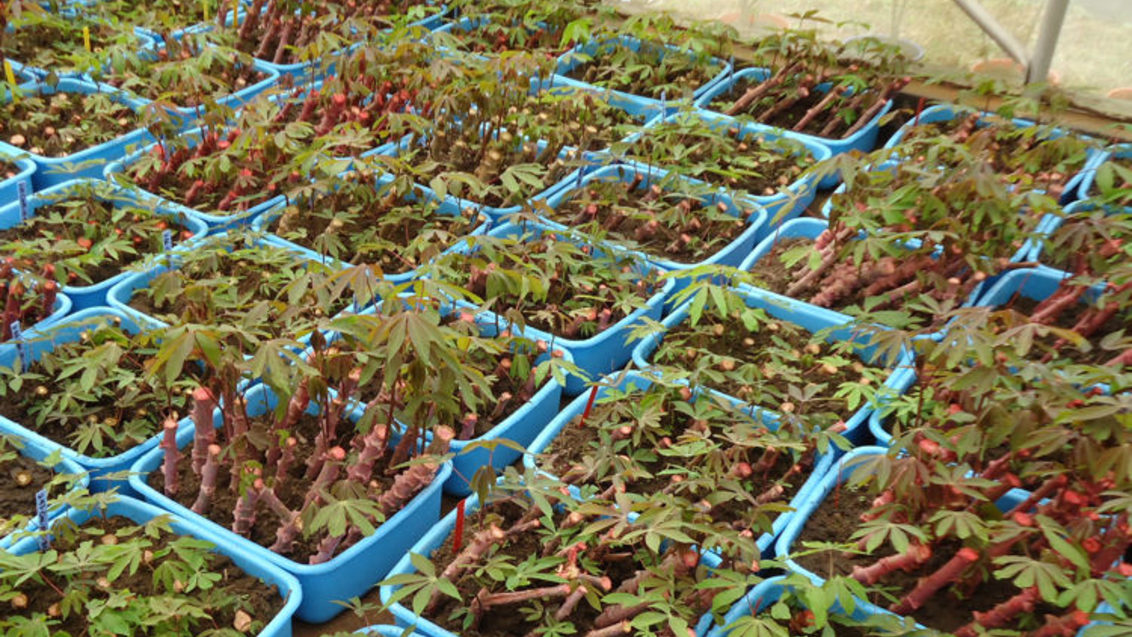Cassava wins attention

Cassava is a vital calorie crop for much of Africa. However, conventional reproduction methods keep yields far below their potential. With partners in Brazil and Uganda, we’re working to change this. Presentation of the results so far has caught experts' attention.
Whether you look at production volumes or the contribution to people’s diets, cassava is one of Africa’s staple crops. It is sturdy, highly adaptable to different environmental conditions, and grows well in poor soils.
Traditionally, cassava is multiplied by cutting the plant’s stems into stakes about 24 cm long. This ‘vegetative propagation’ leads to a much lower multiplication rate than for most seed-bearing plants. For example: Corn’s multiplication rate is 1:300, compared with only 1:8 for cassava.
Such low output makes it hard to develop sustainable supply channels for good planting material. At present, supplying cassava is also usually not financially attractive for the private sector. Lack of involvement by seed companies hampers the dissemination of improved varieties and disease-free planting material. This in turn greatly limits farmer productivity, which could be increased to a yield of up to 20 tons per hectare.
Brazil’s national Agricultural Research Corporation EMBRAPA and we have set out to improve this situation. Our joint aim is to develop a cassava seed stake processing and treatment system for Africa. Called MandiPlus, the system involves coating every seed piece with a combination of protectants and stimulants. This technology enables producers to cut much shorter seed stakes, and thus significantly increase the multiplication rates. (See our photo above).
“MandiPlus opens up opportunities for improving the supply of high-quality cassava planting material and new varieties”, comments Eder Jorge de Oliveira, researcher at EMBRAPA. “In addition, applying seed treatment protects the stakes against fungal and viral diseases as well as insects. As a further beneficial effect of the treatment, there is a boost in germination and vigour of the plants. Greater availability of better cassava could make a huge difference to the food security of millions of smallholder families across large parts of Africa.”
Also in our partnership with EMBRAPA is Uganda’s National Crops Resources Research Institute. Together, we are validating the suitability of MandiPlus for African smallholders. The work is generously supported by the Bill & Melinda Gates Foundation.
EMBRAPA, NaCCRI and we jointly submitted several posters and presentations to the recent 4th International Cassava Conference. One of the posters won first prize. Here it is. Congratulations to the authors!
For further information, please get in touch.
One of our Basel staff, currently on rotation to Kenya, is writing a (largely lighhearted) blog about his experiences. One instalment describes his visit to Uganda and the cassava work.
Our Twitter followers got this conference news first. If you'd like to receive our almost week-daily updates, join us @syngentafdn.
